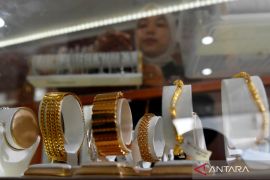Jakarta (Antara Bali) - Investment has grown positively in the third quarter owing to business confidence in the countrys economic conditions, Indonesian Finance Minister Sri Mulyani stated.
"Investment has grown seven percent due to the confidence of business players," she remarked here on Wednesday.She said the realization of the gross fixed capital formation growth, reaching 7.11 percent during the period, had surpassed the expectations of the government that had, in fact, only forecast it at some six percent.
In view of this, she said the government will continue to maintain the momentum, so that the spending component can steadily contribute to the national economy to ensure more optimal growth.
Other spending components that are being prioritized are the exports of goods and services that have also grown positively, so far, this year. In the third quarter of 2017, this sector grew by up to 17.27 percent.
The imports component has also grown during the period to indirectly affect the household consumption sectors performance as well as investment that has, so far, become the biggest contributors to the countrys gross domestic product (GDP).
"Initially, we had predicted that the exports would only increase seven to eight percent, but they have grown by up to 17 percent. Imports of especially raw materials also showed increasing business confidence. This is a very positive sign," Mulyani said.
However, household consumption only grew 4.93 percent in the third quarter, and to this end, the government will direct its efforts to bring about an improvement, as it was related to a change in the pattern of household consumption in the middle and upper classes of the community, she said.
To maintain the purchasing power, she said the government had, so far, offered a social aid program to the low- and middle-income brackets, so that their pattern of consumption would be maintained and would not be affected significantly.
Indonesias economy grew 5.06 percent in the third quarter, driven by exports that grew 17.27 percent and gross fixed capital formation at 7.11 percent, the Central Bureau of Statistics had stated earlier.
Growth in the period was also contributed by consumption of non-profit institutions serving households that grew 6.01 percent, household consumption that rose 4.93 percent, and government consumption that increased 3.46 percent.The biggest contributor to the countrys GDP was household consumption, reaching 55.68 percent in the third quarter of 2017; however, its low growth has become the governments main focus.(*)









